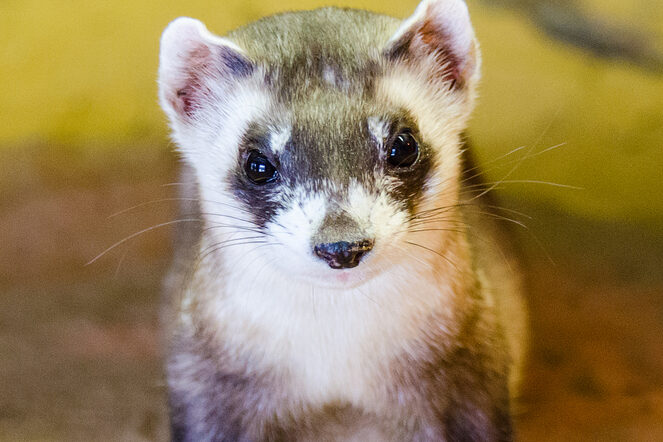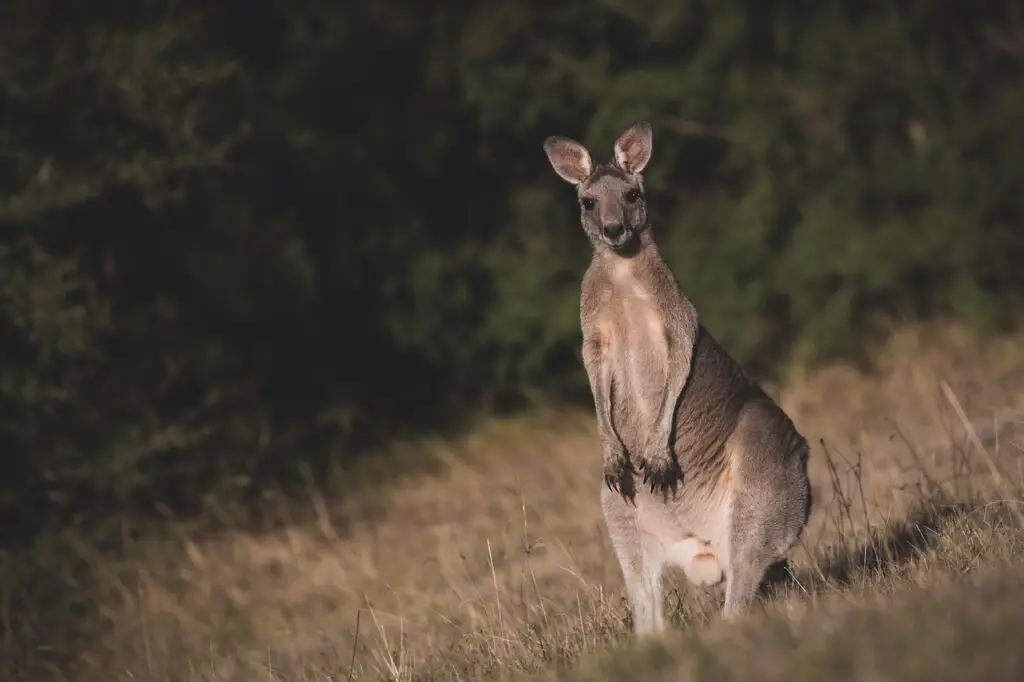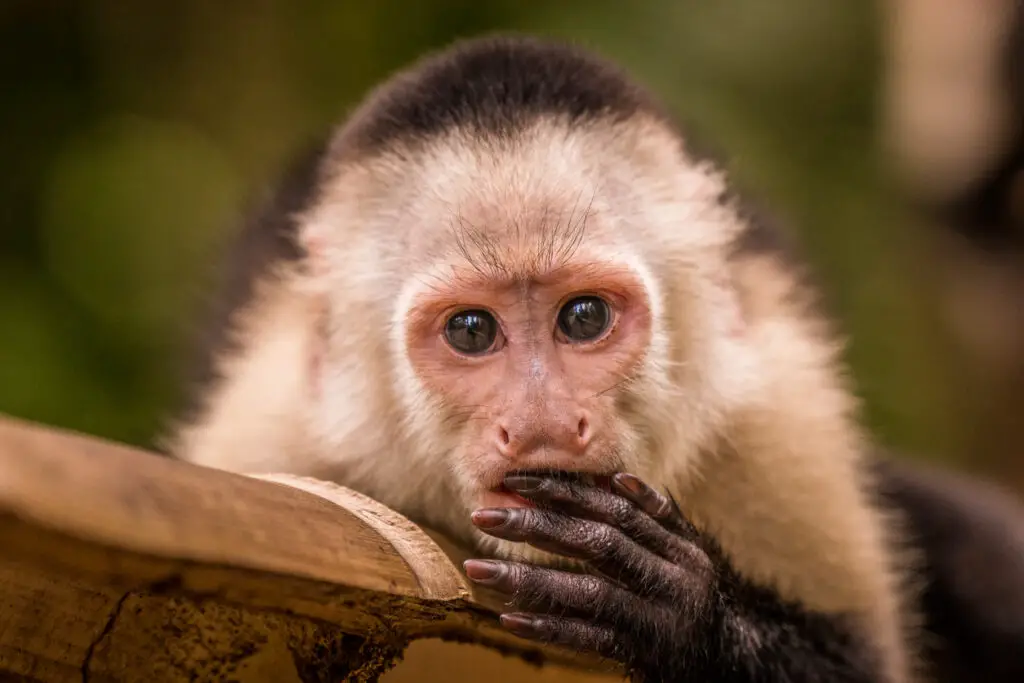1. You Can Own a Tiger in Some States, But Not a Ferret

In some parts of the U.S., you can legally own a tiger with the right paperwork, but ferrets are strictly banned, according to H&P Laws. This might seem like a joke, but states like California and Hawaii have completely outlawed ferrets, citing concerns that they could escape, form feral colonies, and damage local ecosystems. Meanwhile, in states like Texas and Nevada, private citizens can legally own large cats, including tigers, as long as they follow specific guidelines. The stark contrast between these laws shows how state regulations can be more about historical concerns than actual threats posed by these animals.
Experts argue that ferrets, which are domesticated animals, pose far less danger to people than tigers, yet they remain illegal in several places. Many people smuggle ferrets into these states, risking fines or even having their pets confiscated. At the same time, someone with enough land and resources can keep a full-grown tiger legally, despite the obvious risks involved. Animal welfare organizations continue to push for stricter laws on big cat ownership while also advocating for reconsidering bans on domesticated exotic pets like ferrets. The inconsistency in these regulations is a perfect example of how pet laws can sometimes seem completely illogical.
2. Hedgehogs Are Banned in Some States Due to Agriculture Laws

While they may look adorable and harmless, hedgehogs are banned in certain U.S. states due to concerns about agriculture and ecosystem impact. California, Georgia, Pennsylvania, and Hawaii have laws preventing people from keeping hedgehogs as pets because they are considered potential invasive species, according to the World Population Review. Officials worry that if hedgehogs were to escape and establish wild populations, they could disrupt local wildlife and compete with native animals for food. Even though hedgehogs are popular pets in many places, these states have decided the risk is too high.
What makes this law strange is that hedgehogs are fully legal in most other states, with no issues reported. They require specialized care and don’t pose a serious public safety threat, yet they remain illegal in select areas. Some exotic pet advocates argue that the bans are outdated and unnecessary, especially since responsible pet owners take proper precautions to prevent escapes. In states where they are legal, hedgehogs are considered wonderful low-maintenance pets, further proving that these restrictions might be excessive. The debate continues, but for now, residents of certain states will have to admire hedgehogs from afar.
3. In Arizona, You Can Own a Pet Giraffe, But You Can’t Own a Raccoon

Arizona has some of the most unusual exotic pet laws in the country, allowing residents to own certain large, wild animals like giraffes while banning smaller animals like raccoons. While it might seem impossible to keep a giraffe as a pet due to its size and space requirements, the law doesn’t prohibit it as long as the owner meets specific enclosure and care standards. Meanwhile, according to Orent Criminal Law, raccoons are completely off-limits because they are considered a rabies risk and a potential nuisance species. The contrast between what is allowed and what isn’t makes this one of the most perplexing exotic pet laws in the U.S.
Animal experts argue that the logic behind this law is flawed, as owning a giraffe presents far greater challenges than keeping a raccoon. Giraffes require vast amounts of land, specialized veterinary care, and significant resources to thrive, whereas raccoons, though mischievous, are much easier to care for. Some believe that Arizona’s law stems from outdated concerns about raccoons spreading diseases, even though modern veterinary medicine has greatly reduced those risks. Meanwhile, a person with the means to do so could theoretically keep a fully grown giraffe in their backyard without breaking any laws. This bizarre legal discrepancy highlights how exotic pet laws often lack consistency.
4. In Florida, You Need a Permit to Own a Pet Skunk

Florida is known for its lenient exotic pet laws compared to other states, but one of its stranger rules is that you need a permit to own a pet skunk. According to FWC, skunks can be domesticated and even have their scent glands removed to prevent spraying, but the state still requires owners to go through an application process and meet specific conditions before keeping one. Officials argue that skunks are still wild animals and could carry diseases like rabies, even if bred in captivity. Because of this, the state regulates them more strictly than other exotic pets of similar size.
Many animal lovers find this rule unnecessary, especially since skunks kept as pets are often raised from birth to be tame. In states where pet skunks are legal without a permit, owners report that they are affectionate, intelligent, and comparable to cats in their behavior. Florida’s strict regulations make it difficult for skunk enthusiasts to keep these animals legally, despite the fact that other exotic pets, such as parrots and certain reptiles, require no such permits. The rule continues to frustrate exotic pet owners, but for now, anyone wanting a pet skunk in Florida must go through the proper legal channels.
5. In California, Owning a Gerbil Is Illegal

California has some of the strictest exotic pet laws in the U.S., and one of its strangest restrictions is the ban on pet gerbils. According to AZ Legal, gerbils are common pets in most states; California prohibits them due to concerns that they could establish wild populations and disrupt the local ecosystem. Officials fear that if gerbils were to escape or be released, they could thrive in California’s dry climate and compete with native rodent species. This has led to a complete ban, making it illegal to own, sell, or breed gerbils within the state.
This law surprises many people, especially since other small rodents, such as hamsters and mice, are fully legal. Critics argue that domesticated gerbils are unlikely to pose a serious threat, as they have been bred in captivity for generations and rely on human care to survive. Still, California remains firm in its decision, despite the fact that gerbils are perfectly legal in neighboring states like Nevada and Oregon. For California residents, this means that a pet as harmless as a gerbil is off-limits, while larger and potentially more problematic exotic pets, like certain species of parrots and reptiles, are allowed with few restrictions.
6. In West Virginia, You Need a Permit to Own a Raccoon

In most states, raccoons are considered wild animals and are either outright illegal to own or require extensive licensing. However, in West Virginia, residents can apply for a permit to keep a raccoon as a pet without too much red tape. Strangely enough, the process of getting this permit is sometimes easier than the licensing requirements for domestic pets like dogs. While raccoon owners must provide proof of proper care and containment, they are not subject to as many ongoing regulations as dog owners, who need to comply with annual vaccinations and licensing renewals. This unusual loophole makes it one of the few places where you can legally keep a raccoon with relatively little hassle—though experts still warn that raccoons, even when hand-raised, can be unpredictable and challenging to care for.
The reasoning behind this law is unclear, but it may stem from the fact that raccoons are common in the wild and frequently kept as “rehabilitated” pets by wildlife enthusiasts. However, raccoons can carry diseases such as rabies and can become aggressive as they mature, making them a risky choice for inexperienced pet owners. Despite the relatively lax permitting process, veterinarians and animal welfare experts strongly caution against keeping a raccoon as a pet, as their natural instincts and need for socialization with other raccoons make them difficult to manage in a home setting. Still, if you’re in West Virginia and have always dreamed of having a mischievous, masked little companion, you might just be in luck.
7. In California, Ferrets Are Illegal to Own

California is known for its strict laws on exotic pet ownership, and one of the strangest bans applies to ferrets. While these small, playful mammals are legal as pets in most U.S. states, California completely prohibits their ownership under normal circumstances. The only way to legally keep a ferret in the state is to obtain a special permit—and these permits are only granted for medical research, wildlife exhibitions, or specific rescue operations. This means that even if you’ve owned a pet ferret for years in another state, you can’t legally bring it with you if you move to California. In fact, even transporting a ferret through the state temporarily is against the law, and authorities have been known to confiscate them.
The reasoning behind this ban is largely based on concerns about feral populations. State wildlife officials argue that if pet ferrets were to escape and establish breeding populations, they could pose a threat to native wildlife and agriculture. However, ferret enthusiasts argue that domesticated ferrets have been bred for so long that they no longer have the survival skills needed to form wild colonies. Despite numerous efforts by pet owners to overturn the law, California remains one of only two U.S. states (along with Hawaii) that still completely ban pet ferrets. The law is so strictly enforced that people caught with a pet ferret can face hefty fines and even have their animals seized—making California one of the least ferret-friendly places in the country.
8. In Arizona, It’s Legal to Own a Pet Capybara

Arizona has some of the most unusual exotic pet laws in the country, allowing residents to own animals that are banned in many other states. One of the strangest laws applies to capybaras—the world’s largest rodent. While it is legal to own a capybara as a pet in Arizona, there’s a catch: you can’t own just one. State law mandates that capybaras must be kept in pairs or groups, as they are highly social animals that can suffer from extreme loneliness if kept alone. This rule might sound odd at first, but it actually aligns with animal welfare science, which shows that capybaras thrive in social settings and can experience stress and depression when isolated.
The requirement to own at least two capybaras means that prospective owners must be ready for double the responsibility. Capybaras need a large, secure outdoor space with access to water, as they are semi-aquatic and love to swim. They also require a specialized diet rich in hay, fresh vegetables, and vitamin C to prevent health issues. While they can be affectionate and even walk on a leash, they are still exotic animals that may not behave like traditional pets. Despite the legal allowance, animal welfare experts advise that capybaras are not ideal pets for most people, as they need constant companionship and an environment that mimics their natural habitat. So, while Arizona might let you have a pet capybara, be prepared to welcome two into your home—because a lonely capybara is an unhappy one.
9. In North Carolina, You Can Own a Pet Bear Without a Permit in Some Counties

North Carolina has some of the most inconsistent exotic pet laws in the country, with regulations varying dramatically from county to county. In some areas, you can legally own a pet bear without any special permits, while other counties have strict bans on dangerous animals. This means that a person in one part of the state could legally keep a fully grown bear in their backyard, while a person just a few miles away would be breaking the law for doing the same thing. The lack of statewide regulation makes this one of the strangest exotic pet situations in the U.S.
Animal welfare experts warn that allowing private citizens to own bears without oversight is a major safety concern, both for the owners and the public. Bears require enormous amounts of food, space, and specialized care, and their strength makes them unpredictable. Despite this, some counties in North Carolina have no restrictions whatsoever, allowing people to keep bears as pets as if they were dogs or cats. The inconsistency in these laws highlights the challenges of exotic pet regulation, as different areas have wildly different rules for the same types of animals.
10. In Illinois, You Can Own a Kangaroo, But Not a Wolf Hybrid

Illinois has an unusual approach to exotic pet ownership, allowing residents to own kangaroos while banning wolf hybrids. Kangaroos, which are native to Australia and require large open spaces, are legal to keep as pets as long as the owner meets certain care requirements. However, wolf hybrids—dogs that have a percentage of wolf DNA—are strictly prohibited. This rule is in place due to concerns about aggression and unpredictability in wolf-dog mixes, even though many responsible owners argue that they can be trained and socialized like any other large dog breed.
Critics of this law point out that kangaroos are far more difficult to care for than wolf hybrids and are not naturally suited for life as pets. They require special diets, large enclosures, and social interaction with other kangaroos to thrive. Meanwhile, wolf hybrids have been successfully kept as pets in many other states, with responsible owners ensuring their animals are well-trained and cared for. The contrast between what is allowed and what isn’t makes Illinois’ exotic pet laws particularly confusing.
11. In Florida, You Can Own a Pet Monkey

Florida has a relatively permissive attitude toward exotic pets, but one of the most bizarre rules applies to pet monkeys. While it’s legal to own a monkey in Florida, the state has a rather specific classification system for different monkey species, and it only permits the ownership of certain “low-risk” species. The definition of “low-risk” varies, but it typically refers to smaller, less aggressive monkey species, such as capuchins or tamarins. The laws are designed to reduce the potential dangers posed by larger, stronger species like baboons or macaques, which can be unpredictable and dangerous in a household setting. To own a pet monkey, Florida residents are required to obtain a special permit that confirms the species is low-risk and that the owner meets certain health and safety standards.
The permit process requires prospective owners to provide a secure enclosure, submit proof of knowledge about monkey care, and agree to periodic inspections by animal control authorities. While the law aims to ensure that pet monkeys are well cared for and safely contained, it has led to some confusion and controversy. Critics argue that even small monkey species can be difficult to manage, especially as they reach adulthood and their natural instincts for climbing, socializing, and foraging come into play. Monkeys are highly intelligent and social creatures, and without proper stimulation and socialization, they can develop behavioral problems. Many animal welfare experts warn that pet monkeys are not suitable for most households due to their complex needs, including specialized diets, constant interaction, and the risk of spreading diseases like herpes B virus, which is transmissible to humans. Despite these concerns, Florida’s law continues to allow certain species of monkeys to be kept as pets under strict conditions, leaving potential owners to carefully navigate the legal and ethical complexities of keeping an exotic animal.
12. In Washington State, You Cannot Own an Octopus as a Pet

Washington State has an unusual law prohibiting the ownership of octopuses as pets, even though many other states allow them. Octopuses are highly intelligent and fascinating creatures, and some exotic pet enthusiasts keep them in large saltwater aquariums. However, Washington has banned private ownership of octopuses, citing concerns about conservation and animal welfare. The law aims to prevent people from capturing wild octopuses or keeping them in inadequate conditions, as these animals require extremely specialized care.
What makes this law especially strange is that Washington allows many other exotic marine animals, such as certain types of sharks and large tropical fish, to be kept as pets. Octopuses, however, remain off-limits due to their complex needs and potential for mistreatment. Some experts argue that the law is justified, as octopuses are escape artists and can be difficult to care for properly. Others believe that responsible aquarium enthusiasts should be allowed to keep them if they can provide the right environment. Regardless, Washington’s strict stance on octopus ownership makes it one of the more unique exotic pet laws in the U.S.


